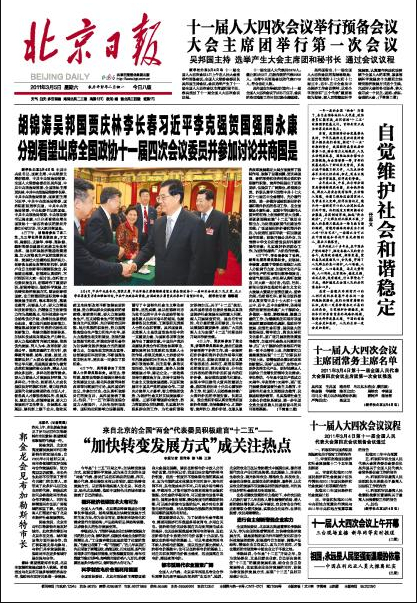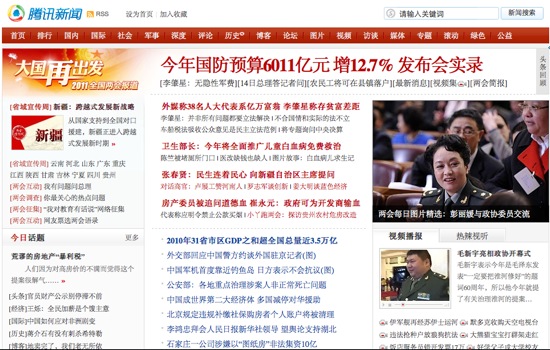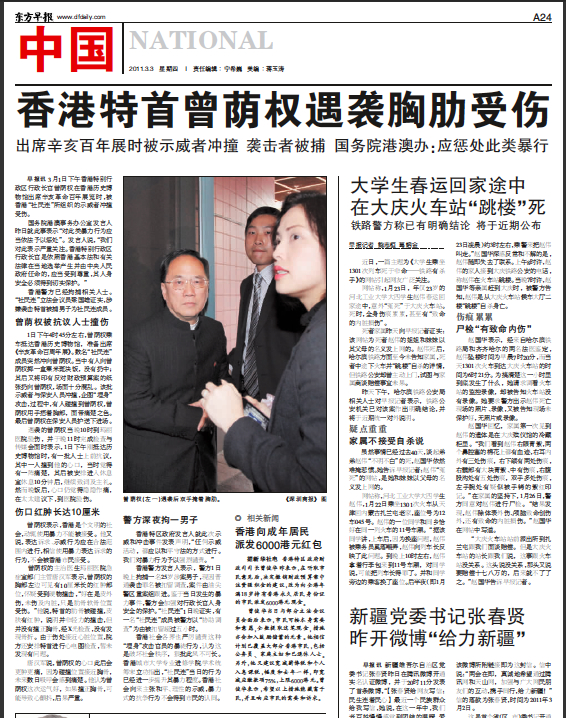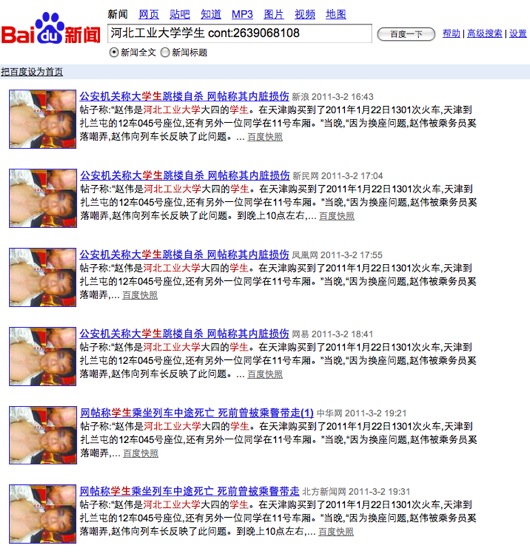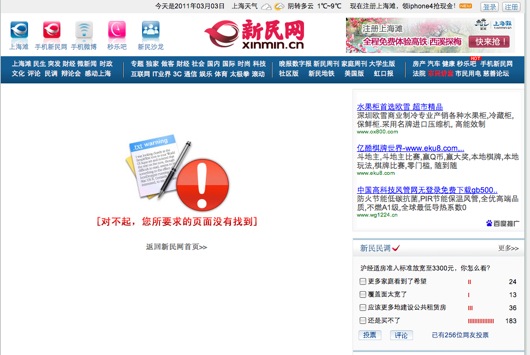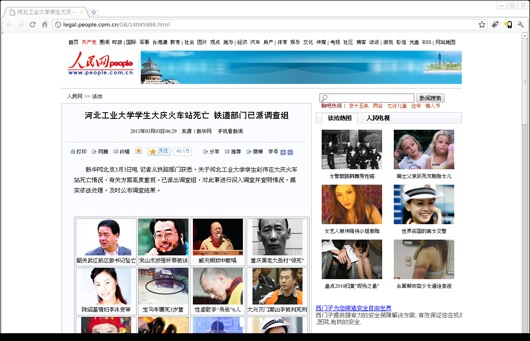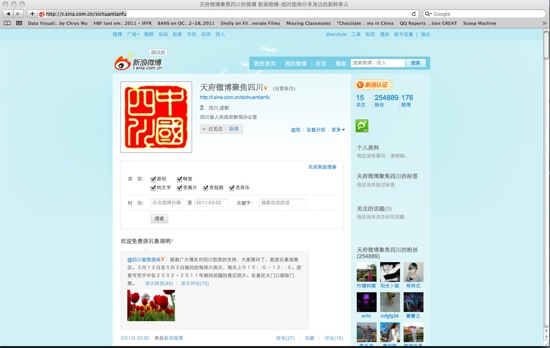While the arguable non-story of China’s “Jasmine protests” enjoys excited and widespread coverage internationally, boiling over into a tug-of-war over the very real harassment of foreign journalists in China, there is one potentially great big story missing from everyone’s agenda — the mysterious death of Chinese college student Zhao Wei (赵伟).
And yet, the chilling story of Zhao Wei, who was very possibly murdered by railway authorities on his way home to Inner Mongolia during the Spring Festival rush more than a month ago, goes to the very heart of the issues and anxieties that are of most immediate relevance to all Chinese, and could contribute to demands for change.
How can the government ensure safety of life and property for ordinary Chinese? How can Chinese find justice in a society where special interests can get away — possibly quite literally in this case — with murder?
Given such immediate concerns about justice and fairness in Chinese society, Zhao Wei’s case has the potential — just the potential, mind you — to become what the Sun Zhigang case was for China’s detention and repatriation system back in 2003.
For those of you fishing around for another news hook, let us remember that China’s powerful Railways Ministry, subject right now to one of the biggest corruption probes in memory, is involved in Zhao’s case too. They are, Xinhua reports, now charged with the official investigation, despite the possibility that their own local authorities in Daqing are culpable.
Got your attention?
Zhao Wei’s story drew a firestorm of interest online earlier this week after a link to an open letter written by his desperate parents emerged through Sina’s microblog, or “weibo,” platform [WARNING: this link includes a photo some may find disturbing].
The essentials of Zhao Wei’s story, which receives basic corroboration by an official Xinhua News Agency release today — we’ll come to that in a moment — runs as follows.
*Zhao, 23, a fourth-year student at Hebei University of Technology, boarded the 1301 train from Tianjin bound for Inner Mongolia on January 22, 2011. He sat in Car 12. A classmate and companion sat in Car 11.
*According to Zhao’s classmate, Zhao was taunted by a train attendant over the issue of a seat change. Zhao complained about this matter to the train conductor. *Later that night, Zhao traded seats with someone in Car 11 so that he could sit next to his classmate. He told the classmate it seemed he had somehow gotten on the train conductor’s bad side.
*At around 3 a.m. the railway police came and led Zhao away from Car 11. Zhao’s parents received a call at around 8 a.m. on the morning of January 23, 2011, saying that Zhao had jumped from a building at the Daqing Railway Station and was being treated. Unable to get clear confirmation of the hospital where their son was being treated, the parents went directly to the Daqing Railway Station, where police told them their son had already died.
*Zhao parents asked to see police photographs from the report on the alleged jump — the police said there were none and the crime scene had not been properly secured. The parents asked to see video surveillance footage — they were told the station was not equipped with video surveillance (which apparently is false).
*When family members were finally allowed to view Zhao Wei’s body, they found wounds that apparently could not be explained by his alleged jump from a building.
*All attempts by the Zhao family to petition various government offices in various jurisdictions for further investigation failed.
Online posts made on March 1 and 2 were accompanied by numerous photographs purported to be of Zhao Wei’s body, documenting various wounds and bruises on his body. The photos were allegedly taken by Zhao’s relatives when they were permitted to view Zhao’s body at the Daqing Mortuary, and found that he had already been dressed in new funeral clothes (which is not general practice).
By mid-morning yesterday, March 2, nearly all references to Zhao’s story had been scrubbed from China’s Internet.
The Sina Microblog post on the case was still available, however, as was the Phoenix Online BBS page it linked to, which included the open letter from Zhao Wei’s parents.
News searches on Baidu revealed that a mainstream newspaper had covered the story yesterday (but perhaps only online), and the report had been available online, attributed to Jinan’s Metro Information Times (城市信报), a commercial spin-off of Shandong province’s official Dazhong Daily.
But the story, still available (as of noon today) via China.com, is attributed there to Xinmin Online, the website of Shanghai’s Xinmin Evening News, a commercial newspaper published by the Wenhui Xinmin United Press Group. The story covers all of the essentials of the Zhao Wei case as known from online materials, and notes that the case has received a great deal of attention from web users “in recent days.”
[UPDATE: China.com story removed on the evening of March 3, sometime before 22:55 HK time. We have an archived version of the story HERE 1 and HERE 2.]
[ABOVE: A Baidu search on March 2 reveals only one news article on the Zhao Wei case, but following the link leads to a “Page Not Found” error.]
Noting yesterday that coverage of the Zhao Wei case was clearly being restricted, CMP set about gathering and translating as many materials as we could. Our number one question yesterday: what will happen tomorrow?
What we find today is an official news release, or tonggao (通稿), on the Zhao Wei case from the official Xinhua News Agency. The release is very brief, and very scant on details. Here it is:
“Railway Departments To Investigate Death of Hebei University of Technology Student in Daqing Railway Station”
Xinhua News Agency, Beijing
March 3, 2011
Reporters Bao Zhiheng (鲍志恒) and Ge Rongjin (葛熔金)
The reporters learned from railway authorities concerning the death of Hebei University of Technology student Zhao Wei (赵伟) in the Daqing Railway Station, that relevant parties are giving the case high priority. An investigative team has already been sent, and will carry out in-depth investigation to clarify the circumstances [of this case], which will be handled according to the law. The results of the investigation will be released quickly.
The most important detail to note about the Xinhua release itself is that the official investigation into the Zhao Wei case is to be conducted by railway authorities, whose role in Zhao’s tragedy is already suspect.
The Xinhua release appears at a number of online sites today, both state and commercial. Here is the Xinhua release as it appears at People’s Daily Online, a site operated by the CCP’s official People’s Daily newspaper. And here is the Xinhua release as it appears at QQ.com, one of China’s leading commercial Internet portal sites [and posted at Global Times Online at 14:15 HK time on March 3 archived HERE].
The difference between the two posts lies below the line.
QQ has drawn a line under the Xinhua release and then included much more material — in fact, an entire report about the Zhao Wei case including fresh interviews with various sources. Where does this report come from?
With a bit of sleuthing through the WiseNews database, we found that only one mainstream newspaper report has appeared in the Chinese media on the Zhao Wei case, and this can be found in today’s edition of Shanghai’s Oriental Morning Post. As it turns out, this is the story that at least two websites, QQ and Sina, have chosen to add to the Xinhua release. [UPDATE 22:45 HK time: QQ has now removed the Oriental Morning Post material, and only the Xinhua release remains. We will provide an archived page of the earlier QQ version tomorrow. Screenshot of current QQ page HERE].
The fact that the Zhao Wei story is still being actively scrubbed from the Internet, combined with the fact that no other mainstream media have touched the story, strongly suggests there has been some sort of directive from press authorities on this story that either defines it as off-limits or sends the signal that coverage is risky. Often such directives will refer media to a Xinhua release like the one above and instruct them to avoid additional coverage.
It is also possible, therefore, that the Oriental Morning Post, the same paper that busted the tainted milk scandal wide open in 2008, has shown courage with its story today.
[ABOVE: Today’s Oriental Morning Post, the only newspaper in China to brave coverage of the Zhao Wei story. This coverage appears on its National page.]
Earlier this week we posted about the Zhao Wei case via our CMP Newswire, noting that the original Sina Microblog post (NOTE: the post comes with a photo) was getting a surge of attention. As of today at 10:26 a.m., this Sina Microblog post, originally posted on February 28 at 23:21, had 66,014 re-posts and 13,986 comments.
The post reads as follows:
[Railway murderers, a college student dies an unnatural death riding the 1301 line] The deceased is Zhao Wei, a college student. Due to a problem over the changing of seats, Zhao Wei was mocked by the train attendant, and he reported this problem to the train conductor. At around 3 a.m., railway police took Zhao Wei away. When a classmate on the same train next saw Zhao Wei, his eyes were already black and blue, and he was dead. The aggrevied: Zhao Wei’s father, Zhao Tingfu; Zhao Wei’s mother Tian Jingrong: http://sinaurl.cn/h5MdgT
The “Sinaurl” link at the end of the post goes to a BBS page at Phoenix Online, which contains the full text of the letter written by Zhao Wei’s parents, which given today’s Xinhua News Agency story we can now safely assume to be genuine.
The posting of the letter to the Phoenix Online BBS was made on February 27, 2011, exactly one month after the date on the “signature” of the letter. Readers may note that this letter was translated by the Ministry of Tofu blog on March 1, so we encourage visits to their version. Ours, however, is below.
More photographs and documentation on Zhao Wei’s death can be found on this Health BBS page at Phoenix Online, including a photograph of the autopsy report — but we warn you that many of the images are unsettling. [UPDATE: Both links on Phoenix Online were disabled early afternoon on March 3, 2011, but we have archived the original link from Sina Microblog HERE and the page on the Phoenix Online Health BBS HERE].
Esteemed Leaders and Friends:
We write to you to complain about the incident of the unjust death in the Daqing Train Station in Heilongjiang province of our son Zhao Wei (赵伟), and we plead that you act on our behalf so that this case can be cleared, the criminals brought to justice, and the wrongs against Zhao Wei be redressed.
Zhao Wei was a fourth-year student at Hebei University of Technology. In Tianjin he purchased [a ticket for] seat 045 in Car 12 of the 1301 line from Tianjing to Zalantun [in Inner Mongolia]. One of his classmates was in Car 11.
According to this classmate, after they got on the train, because of some issue about changing seats, Zhao Wei was taunted and ridiculed by a train attendant. Zhao Wei made a complaint to the train conductor about this problem. At around 10 o’clock that night, Zhao Wei came into Car 11 with his luggage and said to this classmate that it seemed he had done something to upset the conductor. He then switched seats with the person sitting next to this classmate. At around 3 o’clock in the morning, the railway police came and asked Zhao Wei to come with them.
When this classmate next saw Zhao Wei, Zhao Wei’s eyes were already black and blue, and his life was gone.
On January 23, 2011, at around 8 o’clock in the morning, we received a telephone call saying that Zhao Wei had jumped out of a window at the Daqing Railway Station and that he was at the hospital being treated. We asked him which hospital? He said the name twice but couldn’t say it clearly. We then hailed a cab and went to the Daqing Railway Station. Police told us that Zhao Wei had jumped from a building and was already dead. (The train arrived on time to Daqing at 6:21am. The coroner determined that [Zhao Wei had] fallen at around 7:20am. Zhao Wei’s train ticket destination was for the city of Zalantun. The time between 3am and 6:21am is lost, and no one knows exactly what happened. Nor does anyone know what happened at the Daqing Railway Station between 6:21am and 7:20am). We asked: How did Zhao Wei get off the train at Daqing? The police said: We don’t know. We asked to see the surveillance camera footage from the train station, but the police told us that the Daqing Railway Station has no surveillance cameras. We then asked to see photographs or video footage from the scene [of Zhao Wei’s death, or alleged jump], but the police said: The scene was not properly secured, and there are no photographs or video. We asked to see Zhao Wei’s body. The police told us now wasn’t the time. At a loss, we waited until the night of the 24th. Some of our relatives came to Daqing. The police drew out and showed us a medical certification from the Oilfields General Hospital [in Daqing], which concluded that Zhao Wei had died as a result of cranial trauma. Only after much back and forth did the police allow us then to go and see Zhao Wei.
Zhao Wei’s body was being kept in the cold storage at Daqing Mortuary. They pulled him out for us to see, and his body was dressed in brand new funeral clothes. There was no sign of the Yishion brand coat and Nike brand pants he had been wearing. (The head of the Daqing Railway Station told us he had paid 2,600 yuan for this set of [funeral] clothing). We saw that Zhao Wei’s right eye was purple, and the cotton in his nostrils was bloody. There were three wounds inside and outside his left ear. There were wounds in two places on his right lower jaw. There was a large purple bruise on his right hip and buttock, and a wound in the middle. There were five wounds on his right groin, and his scrotum had swollen up to the size of a pear. There were many wounds on both hands, and his left wrist bore purplish red marks that suggested he had been handcuffed. Could so many wounds possibly have come from jumping from a building? Moreover, there were streaks of blood on the coat, pants and shoes Zhao Wei left behind. Could these too have come from a jump?
We asked that a medical examiner look into the cause of Zhao Wei’s death. The police said we would have to find a medical examiner ourselves. At a loss, we demanded to file a petition. Only then did the police carry out an autopsy on January 26, and the results left us even more shocked. Aside from Zhao Wei’s external wounds and cranial trauma, there were fatal injuries to Zhao Wei’s internal organs as well. But the autopsy report (刑事技术鉴定书) made no mention of the swelling of Zhao Wei’s scrotum, and we don’t know whether this was an omission or something intentionally left out. There were wounds in so many areas, scars on different parts [of his body], and still this autopsy report determined Zhao Wei died as a result of a fall from a height that resulted in a massive subarachnoid hemorrhage, and a brain hernia that caused massive craniocerebral trauma and death.
We must ask: this nation, a country which [dedicates itself to] creating a harmonious society, and which [pledges itself] to protecting the lives and the property of the masses — how can it not even protect the safety of life and property of an undergraduate student making his way home for the new year? A human being dies without anyone understanding why. And no one cares.
We must also ask: Zhao Wei was an excellent university student, and very intelligent. How was it that he got off the train only halfway through his journey? Why is it that there are surveillance cameras at the Daqing Railway Station, and [the police] say there are not? How is it that the Railway Police claim that they cannot protect the scene of [an alleged] jump from a building within their own jurisdiction? How could photos or video not be taken of the scene of the [alleged] jump from a building? Why were Zhao Wei’s bloody clothes exchanged for new ones before his relatives arrived?
What in heaven’s name are the Daqing Railway Police and the Daqing railway authorities up to? We called the criminal vice squad of the Daqing Police and they said there was nothing they could do. This was the territory of the railway police. The railway authorities in [the city of] Harbin said this would be referred back to [authorities in] Daqing. And for their part, [the authorities] in Daqing have left a hundred questions unanswered.
If we cannot get to the bottom of Zhao Wei’s death, there is the risk that the same kind of thing could happen to a Qian Wei, a Sun Wei or a Li Wei.
We ask that anyone from any corner of our society with a conscience, that they extend a hand. We ask that relevant departments be able to open up an investigation into Zhao Wei’s death, exposing the circumstances of his tragedy before all. Deal with the murderers, return justice to this harmonious society, and hand justice back to this simple peasant couple who raised Zhao Wei all these 23 years. Let Zhao Wei pass in peace.
Signed, The Aggrieved
Zhao Wei’s father, Zhao Tingfu (赵庭富)
Zhao Wei’s mother, Tian Jingrong (田井荣)
January 27, 2011
SUPPORTING MATERIALS:
Two screenshots of the two most popular Sina Microblog posts on the topic, which enjoyed runaway popularity across the Weibosphere. As of March 3 at 15:00, these microblog entries are fully accessible with a Sina Microblog account. At publication of this article, post #6916701255 recorded 66,000 reposts and 14,000 comments over the course of three days. Post #6914233491 had 43,000 reposts and 10,000 comments.
Sina Microblog post #6916701255 (screenshot — graphic contents)
Sina Microblog post #6914233491 (screenshot — graphic contents)
A screenshot of a Baidu News search showing 12 articles from various online sites on March 2, 2011. Click systematically through these and you get various messages such as “page no longer exists.” The snippet of content visible on the search results page reads: “The online post read: ‘Zhao Wei was a fourth-year student at Hebei University of Technology. In Tianjin he purchased [a ticket for] seat 045 in Car 12 of the 1301 line from Tianjing to Zalantun [in Inner Mongolia]. One of his classmates was in Car 11. ‘ That night, ‘because of some issue about changing seats, Zhao Wei was taunted and ridiculed by a train attendant. Zhao Wei made a complaint to the train conductor about this problem.'”
Readers can view the “Page Not Found” warning for the news story at Sina.com by clicking HERE. The page re-directs to Sina’s homepage after five seconds.
Readers can view the “Page Not Found” warning at Netease (163.com) by clicking HERE. The page re-directs after several seconds.
Below is the warning from Xinmin Online for the story: “We’re sorry. We cannot find the page you requested.”
Below is the March 3, 2011, Xinhua News Agency release on the Zhao Wei case published on People’s Daily Online, the website operated by the CCP’s official People’s Daily newspaper. There is no use of the Oriental Morning Post story.
Below is a Baidu News search conduced on March 2, which reveals only one news story on the Zhao Wei case. Following the link gives a “Page Not Found” message. This story, which is still available at China.com (but apparently nowhere else in China), is attributed to Xinmin Online, the website of Shanghai’s Xinmin Evening News, a commercial newspaper published by the Wenhui Xinmin United Press Group, which also publishes Shanghai’s Wenhui Daily.
